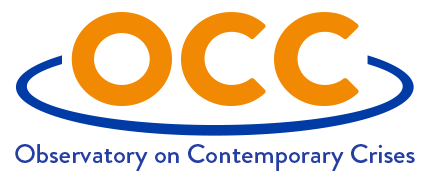One year into the “Ukraine War”, the conflict does not seem to be heading towards a solution. The past year showed that the implications of this war are many, and the situation in Ukraine can be read from many different angles. We asked experts from different fields to share their thoughts on the past year and current developments.
Dr Ellen Carnaghan, Political Science Professor, Director of the Russian-Area Studies Program, Saint Louis University
In the past year, we have learned a great deal from the Ukrainian people about the power of a shared commitment to nation, to independence, and to self-determination. Grounded in these commitments, Ukrainians have shown incredible resilience in the face of Russian aggression. From the Russians, on the other hand, we have seen the lengths the regime needs to go to make empire credible. Internally, the regime has eradicated dissent, countenanced the mass emigration of young and well-educated Russians, and manufactured its own inverted version of reality to try to sell its cause. In Ukraine, Russia’s crimes against humanity establish without doubt the injustice of empire.
Dr Kenneth Warren, Political Science Professor, Saint Louis University
Ukrainian President Volodymyr Zelensky is asking for more money and weapons, including fighter jets, from the U.S. so he can stop Putin from taking Ukraine. But, despite Biden’s promises to continue to provide needed weapons, circumstances in the U.S. will prevent it from providing the support Ukraine needs to win the war. Although polls initially showed the vast majority of Americans supported giving Zelensky significant military aide, public support for what Americans perceive as another “endless” war has declined significantly. With budget-minded Republicans now controlling the House, a debt-ceiling problem needing resolution, and Biden facing reelection in 2024, the odds that Zelensky will receive the weapons he needs to win look bleak.
Dr Jenny Mathers, Senior Lecturer in International Politics, Aberystwyth University
We need to remember that a state’s domestic politics and its foreign policy are intrinsically connected. Over the past year many have been surprised both by Ukraine’s strength and determination in the face of Russia’s mass invasion and by Russia’s failure to live up to its reputation as a formidable military force. Yet both surprises could have been avoided by paying more attention to each country’s domestic politics. The key components shaping Ukraine’s response to Russia’s attack was a powerful civil society and an overwhelming sense of national unity. Russia’s armed forces, on the other hand, have been affected by the problems of Putin’s political system: endemic corruption, performance over substance and a callous disregard for the ordinary citizen.
Dr Samuel Ramani, Associate Fellow at RUSI, Tutor of Politics and International Relations at the University of Oxford
Russia’s invasion of Ukraine underscored its limited military power. The inefficacy of its post-2008 military reforms and Russia’s inability to synthesize conventional force with hybrid tactics, such as cyberwarfare, was laid bare. In other respects, Russia remains surprisingly resilient. The greatest threat to regime stability comes from war hawks rather than anti-systemic liberals. Sanctions caused an attritional erosion rather than a drastic collapse of Russia’s economy. Russia’s diplomatic and security presence in the Global South remains intact. Russia is neither a resurgent great power nor on the verge of implosion, but instead, is on a soft landing to regional power status.
Dr Yuri Rashkin, Instructor, University of Wisconsin-Rock County, Founder of the Rashkin Report
One year into the Russian invasion of Ukraine we can make several conclusions.
1) People in Ukraine, the US and Europe did stand up and now stand together against a brutal aggression of a totalitarian dictator.
2) Terms like “meat grinder” and “cannon fodder” are not just figures of speech but are a real war strategy demonstrating stunning disregard for human life, which people in democratic states in the 21st century could not imagine.
3) Actions and words of leaders have consequences.
4) Greed and cynicism are not a winning strategy, while standing up for what is right and working together are the path to victory.
Dr Daniel Blanch, International Studies Program Coordinator, Political Science Department, Saint Louis University Madrid
As Biden’s recent visit to Kyiv illustrates, the political significance of this war is immense. It has displayed the resolve of the West to oppose aggression but has also stretched Europe’s energy resources to the limit. It has been a military failure for Russia but may have served some dark purpose for Putin to consolidate geopolitical control in his circles. It has evidenced the determination of NATO and the EU, led by the US, to defend Ukraine. Yet ongoing public support for a protracted war is waning even if fierce battles have been reported in the news. The outcome so far: polarized global geostrategic forces.
To quote this article or video, please use the following reference: OCC (2023), “Assessing Ukraine War’s one-year anniversary” https://crisesobservatory.es/assessing-Ukraine-war’s-one-year-anniversary
The OCC publishes a wide range of opinions that are meant to help our readers think of International Relations. This publication reflects the views only of the author, and neither the OCC nor Saint Louis University can be held responsible for any use which may be made of the opinion of the author and/or the information contained therein.
